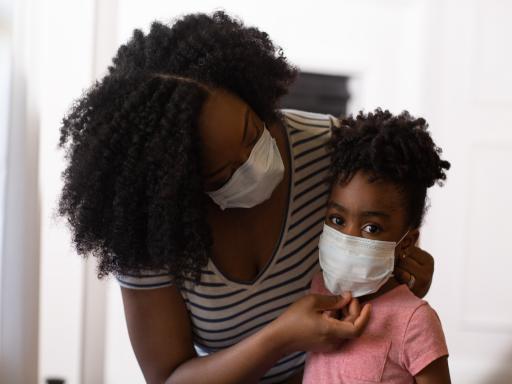The Michigan Coronavirus Racial Disparities Task Force has released its final report, outlining recommendations for collaborative policy, programming and systemic change to protect communities of color from the spread of COVID-19 and create lasting structural change.
The taskforce was established in April 2020 and consists of a variety of leaders from government, academia and the private sector, health care, economic development, education and others who are divided into three working groups.
As CMF reported, Governor Gretchen Whitmer appointed CMF member Dr. Marijata Daniel-Echols, program officer at The W.K. Kellogg Foundation and co-chair of CMF’s Health Funders Affinity Group, to serve on the taskforce when it was established.
“It was an honor to serve on the taskforce. I worked alongside a stellar set of experts and community leaders dedicated to saving lives. Many of the recommendations that came out of our work will improve the health of all Michiganders,” Daniel-Echols said.
According to the report, actions taken in 2020 and 2021 helped Michigan significantly reduce racial disparities in COVID-19 responses and deaths.
The taskforce received Research!America's 2021 Meeting the Moment for Public Health Award for its response to the COVID-19 pandemic. The award recognizes an individual or organization that has played a key role in communicating important public health information to the public.
“The taskforce’s work and recommendations are fully in line with CMF’s Equity at the Center strategic framework and offer opportunities for philanthropy to consider how we can lean into investing in health equity strategies, including community-based service delivery, deferring to trusted messengers in community and addressing root causes of health disparities,” Daniel-Echols shared.
The final recommendations introduced by the taskforce include:
Strategic Testing Infrastructure
- Improve racial and ethnic data collection to address racial and ethnic disparities.
- Continue to fund neighborhood testing and vaccination sites and mobile health units to provide new and existing health and social services to marginalized communities.
- Require adherence to and monitor compliance of federal requirement to assist with meaningful language access.
- Establish a process and infrastructure to send alerts to key community partners and/or residents regarding COVID-19 infection rates and problem areas.
Primary Care Connections
- Decrease the number of uninsured and underinsured Michiganders.
- Fully leverage Health Information Technology and data to reduce racial health disparities.
- Implement quality criteria to incentivize primary care.
- Maximize the use of school-based clinics for expanded care delivery.
- Educate the public about mental health services.
- Increase inoculation rates across ages through statewide messaging campaigns.
Additional Recommendations
- Reduce COVID-19 exposure risks in environmental justice communities related to air quality.
- Ensure that every home and business in Michigan has access to an affordable, reliable high-speed internet connection that meets their needs.
Daniel-Echols shared that serving on the taskforce provided a rare opportunity to see impacts in real time such as lowering COVID-19 cases, hospitalizations and death in Black and Brown communities, influence the near future and lay a path for long term for state government to implement racial equity.
“It's true dream for a program officer to be able to positively impact the short, medium and long term. I hope that all of us who do health-related funding find the final report useful,” Daniel-Echols said.
Want more?
CMF’s Health Funders Affinity Group connects grantmakers throughout the state who fund programs and projects with a health focus. We invite you to join the Health Funders Affinity Group online community to engage with your peers and stay connected with the latest updates related to health funding.
Join your peers in May for the opportunity to reconnect in person on health-related issues of interest to Michigan philanthropy. In addition to dedicated time for learning, there will be time set aside to network and discuss opportunities for collaboration. Whether you are a devoted health funder or just interested in learning more about the challenges and opportunities to support innovation in the field, you are invited to participate. Register here.
Read the full report.
Learn more about The Michigan Coronavirus Racial Disparities Taskforce.
